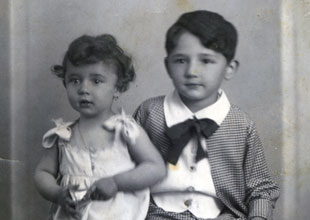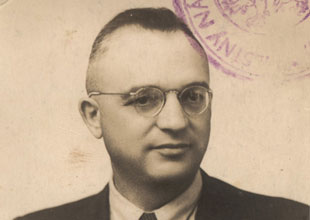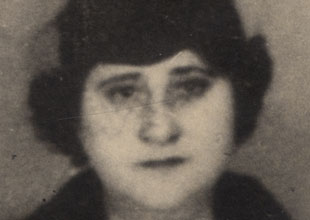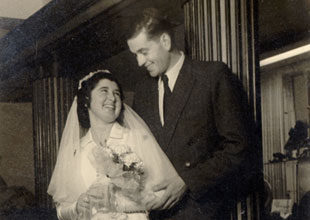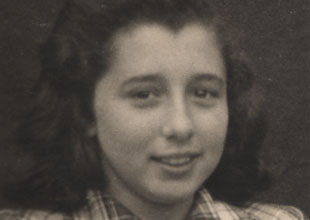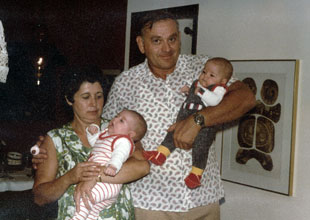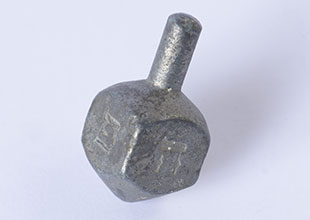Ester Veisfeiller's (Alis Goldmann) Dreidel (Spinning top)
Ester Veisfeiller (originally: Alis Goldmann) was born in 1933 in Moravska-Ostrava (today, Czech Republic) to Menakhem Emanuel and Jolana. She had a brother, Shmuel, who was three years older than her. They were a traditional Jewish family, with her father working as a cattle trader, providing an affluent lifestyle for the family.
In 1939, the family witnessed German soldiers marching past their home, and their property was subsequently looted by the Germans. As both parents were of Slovakian descent, the family fled to Bratislava in search of a safe-haven. During this period, the city was ruled by the Hlinka Guard (the military arm of Hlinka's Slovak People's Party).
Under the ruling totalitarian party – led by Jozef Tiso, antisemitism was rife, and decrees were issued against the city’s Jewish population. They were forced to wear the yellow star as a unique identifying mark. Forcing the Jews to wear a distinctive sign was a widespread tactic of harassment, creating a distinctive gulf between the Jews and the rest of the population.
At this point, the family decided to flee once again. In 1942, they arrived in Kezmarok, Menakhem-Emanuel’s birthplace, where they tried to maintain normal life. The community even arranged schooling, despite the small number of students, totaling less than ten children.
This dreidel was cast during this period by one of the teachers in Kezmarok.
As the situation around them deteriorated, the family fled Kezmarok and hid in a farm. From there, they made their way to the town of Michalovce, and in 1943 returned to Kezmarok. In September 1944, the SS arrived in the town and imprisoned the family in an improvised camp. The local commanding officer tried to help the family and appointed Menakhem-Emanuel as his assistant, but in November 1944 the Jews of the city were rounded up and deported to Auschwitz.
Jolana managed to leave a suitcase containing the dreidel with her Christian neighbors as the family was sent to Plaszow, and arrived in Auschwitz the following day. The deportation train later reached in Ravensbrück. Upon arrival, men and women were separated on the platform, with Ester remaining with her mother. Jolana was sent to work and Ester stayed with the children in the camp.
In February 1945, Jolana and Ester were deported to the Bergen-Belsen concentration camp. Starving and near death, Ester stole beet roots from the camp kitchen in order to survive. Following the liberation of the camp by the British on 15 April 1945, many of the former Jewish prisoners died after eating the large portions of food that they received from the soldiers.
At the end of the war, Ester weighed only 17 kg. Her mother Jolana died on 28 April 1945, just one week after liberation in the DP camp at Bergen-Belsen. Ester was placed in an orphanage together with other children from Bergen-Belsen, but refused to go to Sweden with the other orphans, and instead returned to Czechoslovakia alone. There, she discovered that her father and brother were alive in Kezmarok. After arriving in Kezmarok, she learned that their neighbors had looked after the suitcase containing the dreidel.
Ester immigrated to Israel in 1949 together with the rest of her family.

